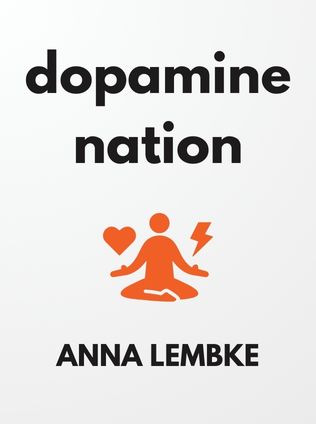
Dopamine Nation
Finding Balance in the Age of Indulgence
By Anna Lembke
Published 06/2021
About the Author
Anna Lembke is a renowned psychiatrist and addiction treatment expert who has dedicated her career to understanding and treating addiction. She is a faculty member at Stanford University, where she serves as the Chief of the Stanford Addiction Medicine Dual Diagnosis Clinic. Lembke's work extends beyond academia as she actively engages with the public through her writings and lectures. Her insightful exploration of addiction and its underlying mechanisms has made her a respected voice in the field. In her book Dopamine Nation, she delves deep into the universal problem of overindulgence and offers strategies to regain control over our behavior.
Main Idea
The main idea of Dopamine Nation is that addiction is an extreme form of a universal problem: the compulsive pursuit of neurochemical rewards at the expense of one’s happiness. Lembke argues that the treatments effective for severe addictions can also help address everyday overindulgence. By examining the reasons behind our compulsive behaviors and leveraging contemporary neuroscience, Lembke provides clear directives for reclaiming control over our lives.
Table of Contents
- Why We Are Driven to Overindulge
- How Your Brain Chemistry Encourages Overindulgence
- Working With Your Brain to Overcome Overindulgence
- Overcoming Emotional Obstacles
Why We Are Driven to Overindulge
The Evolutionary Perspective
Lembke explains that human brains evolved to thrive in conditions of scarcity. In early hunter-gatherer societies, resources were limited, and those who were highly motivated to seek out food and other pleasures had a survival advantage. This evolutionary background means that our brains are wired to continually pursue pleasurable activities, releasing dopamine as a reward for these pursuits. This powerful motivator ensured that our ancestors remained diligent in their quest for survival, constantly seeking out resources to sustain themselves.
Industrialization and Abundance
In modern industrial societies, the abundance of food, entertainment, and other pleasure-inducing goods creates a perfect storm for overindulgence. Our brains, still operating under the assumption of scarcity, are driven to consume these abundant resources excessively, leading to overindulgence and, ultimately, addiction. The problem is compounded by the fact that industries capitalize on this natural inclination, creating products and services designed to maximize pleasure and consumption. For example, the food industry uses additives and flavor enhancers to make products more appealing, while social media platforms are engineered to keep users engaged for as long as possible.
Leisure Time and Overconsumption
The increase in leisure time in industrial societies further exacerbates the problem. With basic survival requiring less effort, people have more time to engage in pleasurable activities. This leisure time, if not used wisely, can lead to compulsive consumption of high-dopamine activities such as video games, social media, and junk food. Instead of spending time on productive or enriching activities, many people fall into the trap of seeking quick and easy sources of pleasure, which can lead to a cycle of dependency and dissatisfaction.
Perfect Conditions for Overindulgence
These factors—evolutionary drives, abundance, and leisure time—work together to create a cycle of overindulgence. Lembke highlights that rising overconsumption is linked to a decrease in happiness and an increase in addiction-related deaths. Despite these challenges, Lembke asserts that it is possible to break free from this cycle by addressing both neurochemical and emotional aspects. By understanding the root causes of overindulgence, individuals can develop strategies to mitigate its effects and lead more balanced lives.
How Your Brain Chemistry Encourages Overindulgence
The Role of Dopamine
Contrary to popular belief, dopamine is not simply the "happy chemical." Instead, it is the chemical that motivates us to seek out pleasurable experiences. High-dopamine activities, such as gambling, shopping, and drug use, drive us to continually seek these pleasures, creating a cycle of overindulgence. This understanding challenges the common misconception that dopamine is solely responsible for the feeling of happiness. Rather, dopamine's primary function is to drive the pursuit of rewards, making it a key player in the cycle of addiction.
Sign up for FREE and get access to 1,400+ books summaries.
You May Also Like
The Subtle Art of Not Giving a F*ck
A Counterintuitive Approach to Living a Good Life
By Mark MansonRich Dad Poor Dad
What the Rich Teach Their Kids About Money - That the Poor and Middle Class Do Not!
By Robert T. KiyosakiHow To Win Friends and Influence People
The All-Time Classic Manual Of People Skills
By Dale CarnegieFreakonomics
A Rogue Economist Explores the Hidden Side of Everything
By Steven D. Levitt and Stephen J. Dubner



















